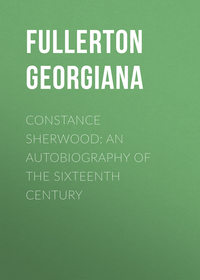Sadece Litres'te okuyun
Kitap dosya olarak indirilemez ancak uygulamamız üzerinden veya online olarak web sitemizden okunabilir.
Kitabı oku: «Constance Sherwood: An Autobiography of the Sixteenth Century», sayfa 3
Bir şeyler ters gitti, lütfen daha sonra tekrar deneyin
Türler ve etiketler
Yaş sınırı:
12+Litres'teki yayın tarihi:
28 eylül 2017Hacim:
640 s. 1 illüstrasyonTelif hakkı:
Public Domain